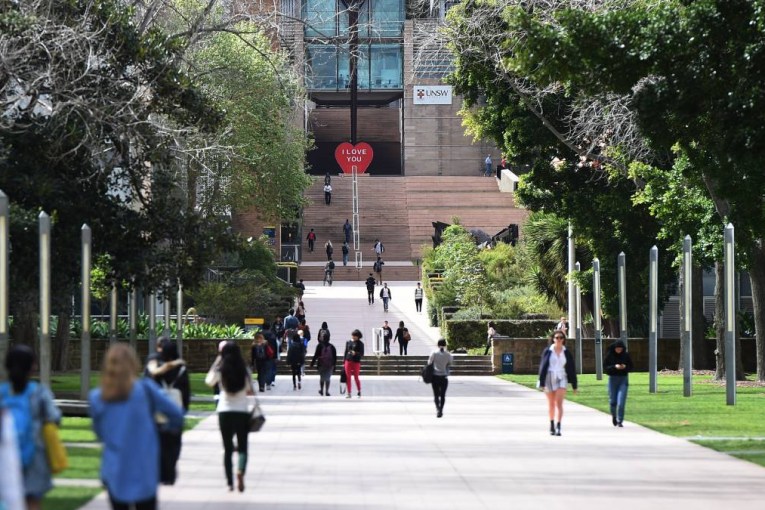I’ve had enough of you.
Everywhere I go you’re there; brushing past me, bumping into me, breathing down my neck and always – always – intruding on my personal space.
What’s wrong with you?
For almost six months we’ve been lectured about social distancing as a way to lessen the risk of spreading coronavirus.
One and a half metres – that’s all you need to create your own personal safety barrier.
Of course, it’s not a guaranteed scientifically-backed method of avoiding COVID-19.
But in public spaces it’s about the best we have right now and, unless you’re one of those lunatics who insist the virus is a government-sponsored conspiracy, keeping your distance just makes sense.
But not you.
You have become my personal stalker in recent months and your cunning disguises don’t fool me.
At the supermarket yesterday you were wearing stained grey tracksuit pants and a T-shirt that only covered half of your hairy beer belly.
But the way you belched and breathed heavily through your mouth as you pushed your way past everyone else in the deli section was a dead giveaway.
I knew it was you because you just don’t care.
You found me 20 minutes later at the chemist, where dozens of us were queuing for face masks.
The line began outside and everyone was keeping a safe distance until you rudely bumped into me pretending to be a wheezing old man, smelling of mothballs and tobacco, looking for the aisle containing your favourite laxative.
And what about the funeral last week?
It began safely enough; government regulations meant the small chapel only had room for close family and the elderly, so the rest of us stood outside in the chilly midday sun and watched the ceremony on large screens.
But when the wake began in the cemetery’s function centre an hour later you turned up in a sombre business suit, mumbled something about gluten intolerance and lunged in front of me to grab a salad.
You were so close I could hear your nose hairs shifting with every breath.

Confined spaces like buses remain a risk for infection, even with social distancing, scientists warn. Photo: Getty
I walked away and watched as that unique human trait – Fear Of Missing Out – swept through the room.
Within minutes the crowd had taken their cue from you and descended on the smorgasbord like a pride of lions ripping apart the carcass of a slow-moving jackal.
So what’s your problem? Why do you always have to be that person flouting convention and putting everyone else at risk?
The current pandemic has given researchers around the world a field day when it comes to analysing why people like you consistently fail to adhere to social distancing guidelines.
One study from Stanford University earlier this year found that young people aged between 18 and 31 were the least likely to comply with physical distancing rules.
According to their findings, people in this age group – wait for it – were more likely to use “I” and “Me” in conversation than other age groups, suggesting a higher-than-average level of self-centredness.
While there have been plenty of instances around the country of younger people staging illegal parties, I’ve seen just as many people over 50 – people like you – blithely intruding on the personal space of those around them.
Other researchers have pointed to innate human emotions like neediness, loneliness, a supreme belief in your own invincibility and an overwhelming sense of self-entitlement as other reasons for your inability to keep your distance.
Just look at the strife you have caused.
In March a team of scientists at the University of Sydney published a study that found social distancing had to be undertaken by four out of every five people to reduce the spread of coronavirus.
Had 80 per cent of the population adopted this practice the recent outbreaks in Victoria and NSW might have been more easily identified and contained.
But now I’ve discovered something that might help keep you away – a simple face mask.

Garry Linnell believes mask wearing should be mandatory. Himself included. Picture: TND
Massimo Marchiori is an Italian mathematician who prefers to do his best work away from his desk.
He has used GPS devices to track the daily journeys of dairy cows to discover the conditions and behaviours that produce the best quality and quantity of milk.
He once installed sensors inside shopping malls to work out how the size of footpaths and passages triggered customer buying decisions.
So when COVID-19 began wreaking havoc throughout Italy earlier this year, Dr Marchiori invented a social distancing measuring belt containing a rechargeable battery and an array of sensors.
He and several assistants then walked the streets of Venice measuring more than 12,000 encounters with other pedestrians.
His findings give a profound insight into human behaviour during this pandemic.
Dr Marchiori discovered that fellow pedestrians would often move closer to him as he sauntered anonymously through Venice’s streets, his equipment hidden inside what appeared to be a drab leather bag.
Despite a soaring death toll and the near-collapse of the Italian health system, that human need to be close to one another was just too compelling for most people to resist.
But when Dr Marchiori wore a face mask on his travels, people moved away from him – in many cases almost twice the usual distance.
The mask, it turned out, provided a stark visual reminder that, in this age of the pandemic, safety is not to be found in numbers, but in solitude.
Garry Linnell was director of News and Current Affairs for the Nine network in the mid-2000s. He has also been editorial director for Fairfax and is a former editor of The Daily Telegraph and The Bulletin magazine








